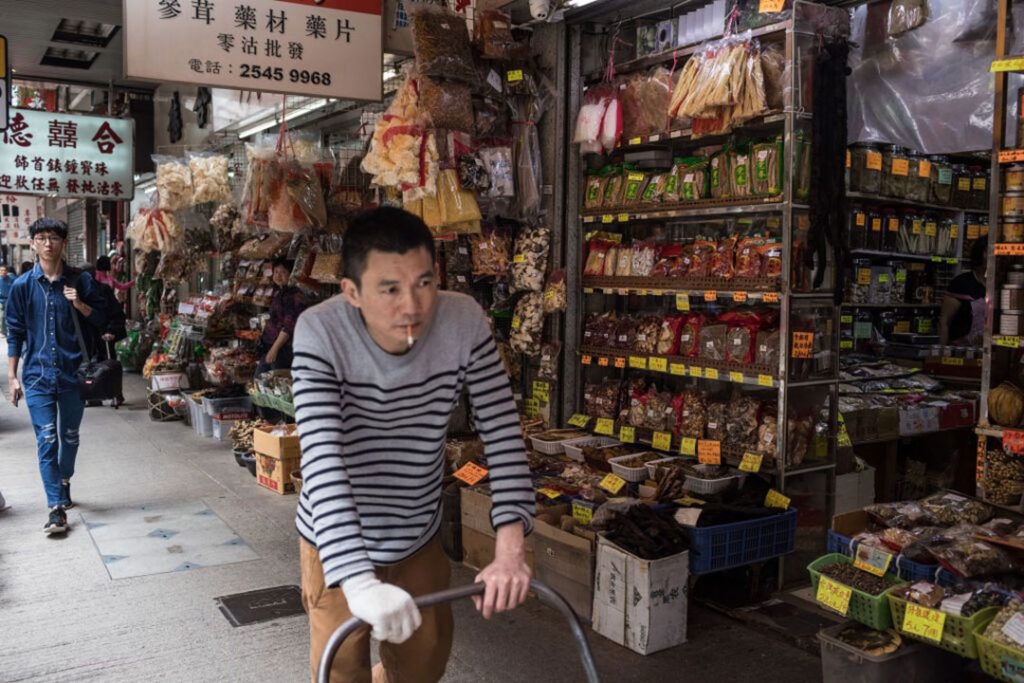The Chinese term fei chien, which translates to “flying money,” refers to an underground financial system with no paper trail that dates back to the Tang dynasty in the ninth century, when traders established a network to settle accounts without carrying coins over long distances.
The ancient Chinese scheme still exists today. Experts say it is the primary method of laundering immense amounts of cash linked to wildlife trafficking and the smuggling of illicit minerals and other natural resources. Traditional Chinese medicine is a leading driver of the illicit wildlife trade worldwide.
“Flying money is often used to denote Chinese money laundering or paying in-kind with a commodity instead of cash,” Vanda Felbab-Brown, a senior fellow with the Brookings Institution and an expert on international crime and terrorism, told conservation website Mongabay for a June 6 article.
Fei chien allows for the virtually untraceable transfer of huge sums of money. Transnational criminal networks use this shadowy system to launder money, pay traffickers and move illicit profits across borders while avoiding the conventional financial sector.
According to Andrea Crosta, Chinese brokers around the world help traffickers pool profits from the illegal trade of wildlife, timber, gold and drugs. Crosta is the founder and director of Earth League International, a nonprofit that works to monitor, investigate and dismantle these crime networks.
In fei chien, a broker in one part of the world receives money and transfers it to another agent in the network elsewhere who pays the same amount to the intended recipient. With Chinese brokers around the world and in their homeland connected to illicit trade, untraceable funds are transferred anonymously through or end up in China.
“The same crooks trafficking people, drugs and weapons are increasingly trafficking elephant ivory, tiger bones and many other natural resources,” Crosta wrote in a June 6 article for Mongabay. “That’s why I believe flying money is the greatest national security risk you’ve never heard of.”
Crosta sees fei chien as a critical component in what he calls “environmental crime convergence” — the growing connection between environmental crime and global organized crime.
“Studies estimate the annual value of environmental crime at between $110 billion and $281 billion, making it one of the most lucrative criminal economies in the world,” the Global Initiative Against Transnational Organized Crime (GI-TOC) stated in a 2023 report.
“Few of the proceeds of this market benefit the development of communities near the source markets but are instead transferred abroad and laundered into the global financial system.”
Internet-enabled smart devices have transformed how illicit exotic wildlife, timber, precious metals and other commodities are sold, with traders able to reach to a much wider audience over long distances and at little cost, GI-TOC said.
Money laundering through the fei chien system is key to the connection between multiple criminal enterprises.
“The menace has grown in recent years, fueled by underground Chinese networks equipped with new technologies that can enable dirty money to be washed clean in minutes,” according to a 2024 report in The Economist magazine. “For transnational criminal gangs, these shadowy ‘banks’ are becoming the financiers of choice.”
Crosta says one way to fight fei chien is to target the individuals, entities and countries with sanctions for facilitating financial crimes. This also would help restore legitimate government revenue from legal transactions. In Africa, that kind of response could save wildlife, ecosystems and tourism industries that are in danger.
“The only way to defeat a threat stretching from Asia to Africa is by working together,” he wrote.

